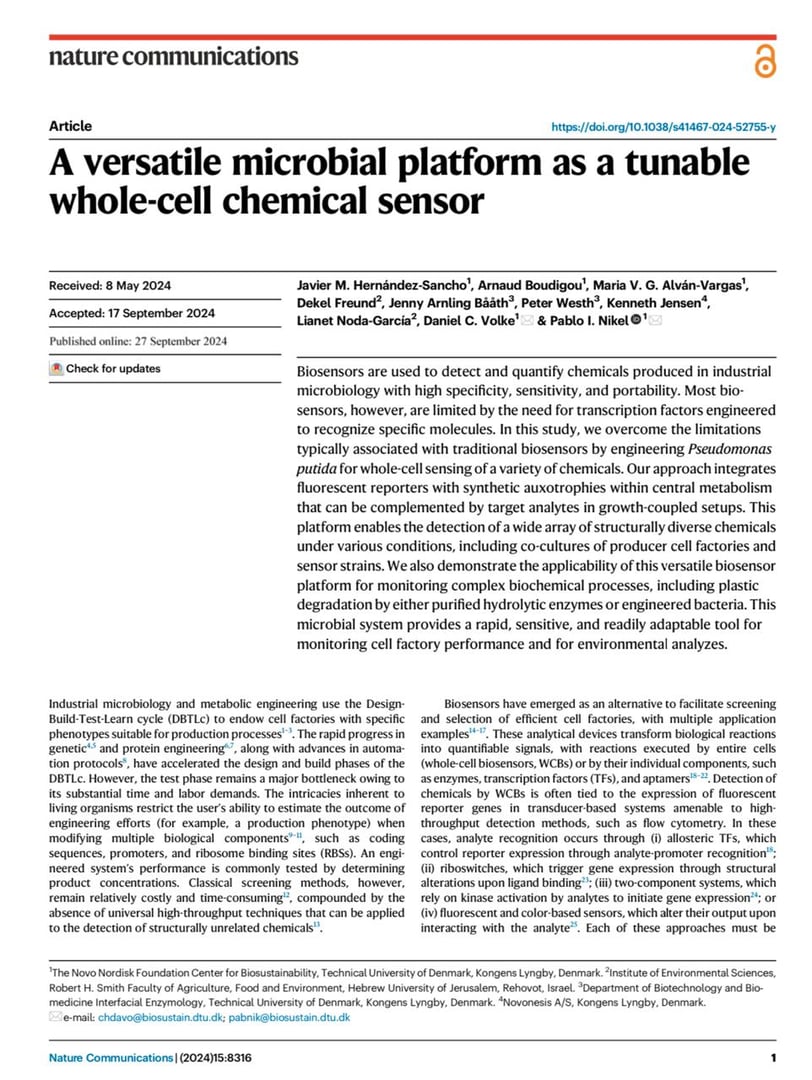A versatile microbial platform as a tunable whole-cell chemical sensor - Paper of the Day
Today's Paper of the Day article discusses the engineering of a Pseudomonas putida strain as a whole-cell biosensor (WCB) that can detect a wide range of chemicals, including industrially relevant metabolites and environmental pollutants. The researchers changed the way P. putida breaks down sugar so that it needs certain analytes to grow. They linked the amount of biomass and fluorescence to the concentration of the target compound. Scientists showed how flexible this WCB platform is by using it to find D-lactate, protocatechuate, and breakdown products of polyethylene terephthalate (PET). The engineered sensor strains showed high sensitivity and a wide dynamic range, making them suitable for high-throughput screening applications. The authors also used the WCB system in a variety of experimental settings, such as looking at culture supernatants, keeping an eye on enzyme activities in the lab, and following the breakdown of plastic in living organisms while they were in a bacterial co-culture.


